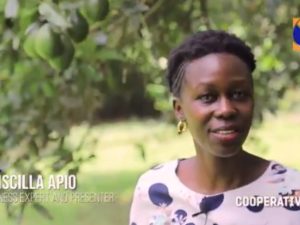After taking this course you will be financially literate, which means that you will be able to manage your personal and business finances in order to improve your own financial situation and that of the Farmer Based Organization (FBO) you belong to.
Financial Literacy For Farmers
- Description
- Curriculum
- Reviews

Learning Objectives
Learning Agenda
Go through 12 lessons. Each lesson starts with a video (approx. 15 min) and offer you exercises (approx. 30 min) afterwards. After 9 hours of Financial Literacy Course you can take the test and proof that you are Financial Literate
-
1lesson 1 Introduction
Congratulations, this is your first step towards becoming more financially stable.After 12 sessions of the course and passing the test, you will be able to manage your own money well and contribute better to the cooperative money and decision making.
But what is Financial Literacy and how will it benefit you?
Learning objectives
After session 1:
- You know you can become more financial literate
- You know that being financially literate means that you will be able to manage your personal and business finances in order to improve your own financial situation and that of the FBO.
- You are motivated to go through all sessions of the course
Agenda
- Watch the video (15 min)
- Take the quiz (10 min)
-
2lesson 1 Quiz
Spend less than 10 minutes answering these questions about you have understood from the lesson and you will immediately see your overall score.
-
3lesson 2 Setting goals
“If you fail to plan you plan to fail” . That is a useful saying when thinking about the importance of goal setting. To succeed as a farmer and a coop it is important to have goals and plan ahead. This session will train you to develop short and long-term goals and strengthen your self-management skill set. You will learn how to use a tool that will help you further develop those skills. But before you can set goals you need to create a vision for your future. How do you want your future to look like. Let’s start looking forward.
Learning targets
After session 2:
- You understand that it helps to set goals in order to achieve your vision.
- You know how to set financial goals and prioritize them
- You know that planning is important in order to reach your financial goals
- You motivated to define a vision and plan for your goals
Agenda
- Watch the Video - Part one (10 min)
- What is your Vision? (10 min )
- Watch the Video - Part two (10 min)
- Set your Goals and do it SMART (15 min)
-
4lesson 2 Exercise
-
5lesson 3 Planning
In the last session you have learnt that smart goal setting helps you to achieve your vision. And you have started to set your goals for your family and your business.
In this session we dive deeper into budgeting. This is an important part of achieving your goals. In this session you will learn more about how to use money and what are the common categories of expenses. It is important to be aware of the household incomes and understand fluctuations in income and how to deal with that through budgeting and planning. Let’s turn your goals into a financial plan.
Learning targets
After session 3:
- You are aware of your various expenses for both the family and the business
- You know the difference between regular and irregular expenses
- You know that saving is needed in order to cover future expenses
- You are aware of the challenges of saving and how to overcome them
- You can plan for both regular and infrequent expenses
Agenda
- Watch the Video (30 min)
- Gather your expenses and income (1 hour)
-
6lesson 3 Exercise
-
7lesson 4 Record keeping
Now you understand the importance of personal finance and the need for budgeting. In this session you will learn how to keep records. You will learn what it is and how to do it. There is a tool provided and we will practice using it.
Let’s make sure you keep track of your finances and achieve your goals.
Learning targets
After Session 4:
- You know why it is important to keep records
- You know key information, which you should record in your farming activities
- You can use a simple record keeping template
- You know the importance of separating farming and household records
Agenda
- Watch the Video (15 min)
- Use the tool (30 min)
-
8lesson 4 Exercises
-
9lesson 5 Saving
In this session we dive deeper into saving. You already learnt why saving is important, but how does it work exactly? You will motivate yourself to save and keep track of it.
Learning targets
After Session 5:
- You will know about good saving practices
- You will know where and how to save money
- You will know the advantages and disadvantages of the various saving options
Agenda
- Watch the Video (30 min)
- Answer the question (15 min)
-
10lesson 5 Exercise
-
11lesson 6 Investment
There is more to know about investment. Do you already know why one invests? It is also good to know about different types of investments and their pros and cons. In this session you become more aware of the questions that you need to ask yourself before you invest.
Learning targets
After Session 6:
- You know why you should invest and what are smart investments
- You know the conditions for a successful investment
- You know what questions to ask yourself before deciding on an investment
Agenda
- Watch the Video (30 min)
- Answer the question (15 min)
-
12lesson 6 Exercise
-
13lesson 7 Loans
You have heard about loans and you might have taken loans before. But have you ever thought about why you need a loan? Did you know there are alternatives to loans? In this session you learn about loans and how you can make a success out of a loan and also what are the risks? We pay special attention to loans to the Cooperative.
Learning targets
After Session 7:
- You know what a loan is and you know about other ways of resource mobilization
- You know the conditions for a successful loan
- You know the difference between a good and a bad loan
- You know the concepts of collateral, guarantor, loan requirement and loan repayment
AGENDA
- Watch the Video (30 min)
- Take the quiz (15 min)
-
14lesson 7 Quiz
Spend less than 10 minutes answering these questions about you have understood from the lesson and you will immediately see your overall score.
-
15lesson 7 Checklist
-
16lesson 8 Financial Institutions
What do you know about the financial institutions in your area? It is good to be aware of what makes a financial institution trustworthy and which ones you should avoid. In this session we take a closer look and you will also learn about your rights and obligations ones you borrow or deal with a financial institution.
Learning targets
- You know what different Financial Institutions are there and what they do?
- You know the difference between a viable FI and a fake one or not trustworthy one and how to find out
- You know what questions to ask in order to choose a good Financial Institution
- You know what rights and obligations you have as a client of a Financial Institution
AGENDA
- Watch the Video (30 min)
- Share your stories (15 min)
-
17lesson 8 Exercise
-
18lesson 9 Mobile money
Session Nine on Mobile Money
Have you ever used Mobile Money before? Let's make sure you know what mobile money is, what the pros and cons are and most of all that you can benefit from this service if you choose to.
Learning targets
After Session 9:
- You know what mobile banking is
- You know the advantages and disadvantages of mobile banking
- You know how mobile banking works
AGENDA
- Watch the Video (30 min)
- Answer the question (15 min)
-
19lesson 9 Quiz
Spend less than 10 minutes answering these questions about you have understood from the lesson and you will immediately see your overall score.
-
20lesson 10 Risks
In this session we dive deeper into daily hardships, risks and challenges. It is useful to know how do you deal with them and protect yourself. We will also look into typical business risks and how do you best deal with those.
Learning targets
After session 10:
- You are aware of daily hardships and how to deal with them
- You know the difference between challenges and risks
- You know about common business risks and solutions to those
- You know the meaning of important words that are used in business administration.
AGENDA
- Watch the video (25 min)
- Play the game (20 min)
-
21lesson 10 Exercise
-
22lesson 11 Business Plan
Do you know what a business plan is and why and when would you need one? In this session you will learn more about business plans and you are going to make one. We will provide you with a tool that you can use and you will practice using it.
Learning targets
- You understand what a business plan is and why it is important
- You understand why a business plan is particularly important for a cooperation and how and when to discuss it with the members
- You know the ADC Business Plan Tool and what the various parts mean
- You get to use the ADC Business Plan tool for your own business and filled it in
- You know the success factors for a good presentation or pitch
AGENDA
- Watch the Video (30 min)
- Make your own (flexible)
-
23lesson 11 Exercise
-
24lesson 12 Negotiating
This session is about negotiating. Do you know why it is important to be a strong negotiator for yourself but also for your cooperative? What makes a strong negotiator? Let us learn and practice, because being a strong negotiator can be the difference between a good harvest and bad for you, your family and your whole cooperative.
Learning targets
- You understand why negotiation is unavoidable and why it is important to prepare well
- You know about two types of negotiation styles and when or why to use which
- You know how to prepare for a negotiation
- You have practiced both styles
AGENDA
- Watch the Video (30 min)
- What would you do? (flexible)
-
25lesson 12 Exercise






